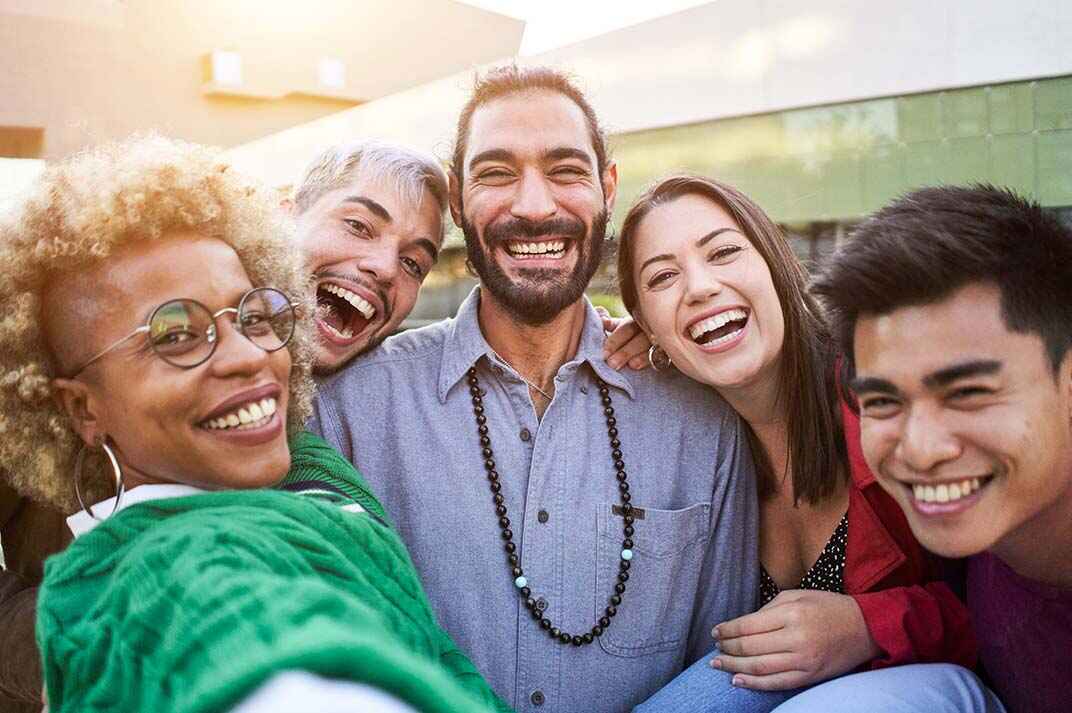Charting the Course: A New Era for the Marchman Act
Reflecting on the Legacy: Marchman Act’s Historical Footprints
The Marchman Act has played a pivotal role in shaping Florida’s approach to addressing substance abuse through involuntary commitment. This legislation was born from a need to empower families and loved ones to intervene in the lives of individuals grappling with severe addiction. The Historical overview of the Marchman Act provides insight into its evolution, showcasing how it became a cornerstone of civil procedures aimed at promoting recovery. However, as with any significant legal framework, the Marchman Act’s historical trajectory reflects both triumphs and challenges, underpinning the ongoing discourse on involuntary treatment.
The Marchman Act Today: Navigating Civil Procedures and Legal Frameworks
In today’s complex legal landscape, the Marchman Act stands as a critical tool for those seeking involuntary treatment for individuals in need. Navigating the legalities involves understanding the intricacies of Marchman Act legal procedures, which are designed to balance the rights of individuals with the necessity of treatment. The civil framework within which the Marchman Act operates ensures that those subject to it are afforded due process and humane treatment. Today’s legal environment emphasizes the need for transparency and fairness as stakeholders engage with the Florida court system to advocate for the well-being of those in crisis.
Marchman Act and Its Role in Modern Addiction Treatment Programs
Modern addiction treatment programs have increasingly integrated the principles of the Marchman Act, recognizing its value in situations where voluntary participation is not forthcoming. Intensive Outpatient Programs, for instance, are tailored to individuals who may have been subject to the Marchman Act, providing them with a structured pathway to recovery. The utilization of the Archman Act provisions in treatment settings underscores a shift towards comprehensive care that combines legal intervention with therapeutic strategies. As such, the Marchman Act treatment options in Florida continue to evolve, reflecting advancements in our understanding of addiction and recovery pathways.
Analyzing Trends: Involuntary Commitment in Fluid Legislation
Involuntary Commitment Trends: Evolving Legalities in Florida
As Florida’s legal landscape evolves, so do trends in involuntary commitment, with the Marchman Act at the forefront. Florida’s court system has often been a crucible for testing new methods of addressing substance abuse and adapting to societal and legislative changes. Recent court rulings for the Marchman Act have underscored the importance of ensuring that the rights of individuals are protected while serving the best interests of those in need. Stakeholders are increasingly called to balance compassion and legal rigor in petitions, prompting calls for streamlined processes and clearer guidelines. Consequently, the state’s statutes are being scrutinized better to reflect modern challenges and opportunities in addiction treatment.
Pioneering Reforms: Legislative Changes on the Horizon
Florida is at the cusp of pioneering reforms, with upcoming legislative changes poised to reshape involuntary commitment procedures. Policymakers are considering amendments to enhance the fairness, accessibility, and effectiveness of the Marchman Act, aligning it with contemporary substance abuse laws in Florida. Emphasis is being placed on addressing gaps identified in the implementation process, from inconsistencies in court applications to variances in county-level enforcement. These reforms aim to bridge the gap between existing legal practices and evolving societal expectations, ensuring that the Marchman Act remains a relevant and robust tool in battling the addiction crisis. Collaborations with mental health professionals and legal experts will further guide these legislative changes, fostering a more integrated approach to treatment.
Marchman Act Challenges: Overcoming Barriers in Legal Applications
Despite its significant advancements, the Marchman Act faces challenges in legal applications that require strategic solutions. Practitioners often encounter obstacles such as procedural ambiguities and varying interpretations across judicial districts, which hinder timely interventions. Efforts are underway to delve into the Marchman Act implementation challenges, seeking standardized procedures that streamline the petition process. Additionally, improving public awareness about the Act’s provisions and expanding training for legal professionals are pivotal steps toward overcoming these barriers. Stakeholders are holding discussions to devise pathways that not only simplify the legal process but also ensure more effective and humane outcomes for individuals subjected to involuntary commitment.
Innovation in Action: Exploring Future Possibilities
Breaking Ground: Alternatives to the Marchman Act
In the quest for more effective solutions to substance abuse, there is a growing interest in identifying alternatives to the Marchman Act. These alternatives seek to provide more personalized and adaptable responses to addiction treatment, in contrast to the rigid structure of involuntary commitment. Some potential approaches focus on community-based initiatives, where local support systems are leveraged to encourage voluntary participation in detox and rehab programs in Florida. By emphasizing flexible support networks, these programs aim to foster an environment that naturally draws individuals toward seeking help. Additionally, exploring models that integrate family involvement and peer support has shown promise in enhancing treatment engagement and effectiveness.
Understanding these alternatives requires a deep dive into the potential for innovative legal and therapeutic frameworks. By examining successful models from other jurisdictions and adapting them to Florida’s unique landscape, policymakers hope to craft approaches that offer compassionate yet potent interventions. Exploring Advanced Marchman Act Strategies for 2024 Collaboration between legal experts, healthcare practitioners, and individuals with lived experiences will be key in shaping these solutions. As such, the exploration of alternatives to the Marchman Act is likely to continue evolving, addressing gaps and fostering a culture of healing and recovery.
Addiction Intervention Strategies: Bridging Traditional and Modern Approaches
As addiction treatment continues to advance, there is a critical need to bridge traditional practices with modern innovations. Intervention strategies are increasingly incorporating evidence-based methodologies, drawing from both historical wisdom and cutting-edge research to optimize outcomes. Traditional approaches often rely heavily on structured programs and community meetings, such as AA Meetings and NA Meetings, which have been pillars of addiction recovery. However, modern strategies are now integrating technology, such as telehealth services and digital monitoring tools, providing more real-time support for individuals in recovery.
The integration of traditional and modern techniques is reshaping the landscape of addiction intervention. Personalized treatment plans, which consider the unique circumstances and needs of each individual, are becoming more prevalent. This holistic view of treatment acknowledges not only the clinical aspects of addiction but also the social, economic, and psychological factors that influence recovery. Through these combined strategies, a more comprehensive and supportive environment is created, bolstering the effectiveness of interventions and increasing the likelihood of sustained recovery. Top 10 Insights into Utilizing Marchman Act for Recovery Near You in Orlando
Innovation in Rehabilitation Law: Paving Pathways to Recovery
Rehabilitation law is undergoing significant transformation, paving new pathways to recovery by integrating innovative legal practices. These innovations are driven by a need to respond dynamically to the evolving nature of addiction and the diverse needs of those affected. Current discussions focus on creating legislative frameworks that support humane, effective, and accessible treatment options, moving beyond punitive measures to those that prioritize healing and reintegration into society. Efforts are concentrated on reforming Florida addiction policies, aiming to blend legal strategies with therapeutic advancements.
A forward-thinking approach to rehabilitation law involves revisiting existing policies and amending them to promote better outcomes for individuals requiring involuntary treatment. By incorporating insights from addiction science and engaging with multidisciplinary teams, Florida aims to craft policies that reflect modern understandings of substance abuse. Legislative changes are also seeking to enhance collaboration between mental health professionals, legal systems, and community organizations, creating a cohesive network of support. This holistic approach promises a more integrated and effective method to address the challenges posed by addiction in today’s society.
Bridging the Gap: Legal Support and Mental Health Intersections
Exploring the Nexus: Mental Health and Addiction Laws
In recent years, the intersection of mental health and addiction laws has become increasingly complex, challenging policymakers and practitioners alike. The Marchman Act is instrumental in addressing these complexities by providing a legal framework for involuntary treatment. However, as the field evolves, so do the Mental health and addiction intersections, prompting a reevaluation of how laws accommodate dual diagnoses and co-occurring disorders. Understanding this nexus is crucial for crafting legislation that harmonizes with contemporary therapeutic practices. As cross-disciplinary discussions advance, integrating mental health considerations into addiction treatment is essential, creating holistic approaches that address the multifaceted needs of individuals.
Efforts to bridge this gap hinge on collaborative engagements between legal experts, healthcare providers, and mental health advocates. These stakeholders collectively strive to refine policies that ensure compassionate and informed interventions. Emphasizing human rights and individual dignity, the integration of mental health into addiction legislation represents a paradigm shift in how society approaches treatment. Moreover, as a societal understanding of mental health deepens, it becomes imperative to adjust legal processes to better serve those affected by multiple disorders. Understanding Marchman Act and Baker Act Differences in Florida
Enforcement and Implications: The Future of Involuntary Treatment
Enforcing involuntary treatment laws, including the Marchman Act, presents both challenges and opportunities in shaping the future landscape of addiction interventions. The prospects of involuntary commitment advancements are closely tied to balancing patient rights with societal safety, mandating progressive approaches that respect autonomy while providing necessary care. Policymakers and judicial authorities must navigate the delicate intricacies of enforcement, ensuring that interventions are just and effective.
Innovations in treatment protocols and legal applications pave the way for a more nuanced understanding of involuntary commitments. The implications of such advancements extend beyond legal ramifications, influencing the societal perception of addiction treatment. Consistent reviews of enforcement practices aim to identify and rectify discrepancies, fostering an equitable system that aligns with evolving legal and ethical standards. Thus, the future of involuntary treatment demands continuous dialogue and reforms that endeavor to serve those in crisis compassionately and justly.
Transforming the Courtroom: Marchman Act Court Rulings in Focus
Court rulings play a pivotal role in shaping the application and perception of the Marchman Act, particularly as they illuminate the dynamics of involuntary treatment cases. Transforming courtrooms into spaces where legal rigor meets compassionate care remains at the forefront of legal discourse. Recent trends in Marchman Act court rulings reflect an increasing recognition of the complexities inherent in addiction treatment, advocating for judicial processes that emphasize patient dignity and rights.
Judges and legal practitioners are continually adjusting to new expectations about addiction jurisprudence, calling for transparent, well-informed case deliberations. These judicial insights provide a platform for future reforms, challenging outdated norms and fostering a legal environment conducive to progressive treatment approaches. As case precedents continue to evolve, they offer invaluable lessons and opportunities for refining the Marchman Act, ultimately serving as a beacon for future legislative innovations.
Looking Ahead: Envisioning a Progressive Marchman Act
Legislative Visionaries: Florida Addiction Treatment Legislation Updates
Florida stands at the brink of transformative changes in addiction treatment legislation. Visionary policymakers are actively pursuing enhancements to Florida’s addiction policies to align with contemporary needs. Emphasis is on recalibrating the legal framework of the Marchman Act to address current societal and therapeutic challenges. As the state contemplates comprehensive reforms, there is a focus on improving accessibility, transparency, and fairness in involuntary commitment procedures. These legislative updates aim to bolster the existing legal mechanisms and integrate them with modern therapeutic practices, fostering an environment conducive to sustainable recovery.
The Petition Process: Decoding Future Solutions
The Marchman Act petition process is a vital component of involuntary commitment procedures that secure life-saving interventions for those battling addiction. Innovators are keen on decoding future solutions to streamline this process, ensuring it becomes more user-friendly and efficient. By addressing current complexities and delays in the petitioning workflow, stakeholders seek to enable timely and equitable access to essential services. Florida’s commitment to refining this process is apparent as it incorporates insights from legal experts and healthcare professionals to enhance its efficacy and responsiveness. This dedication is crucial for bridging gaps and facilitating smoother transitions for those in crisis, enhancing the effectiveness of the state’s approach to addiction treatment.
An Evolved Approach: Embracing Trends in Addiction Treatment Law
The landscape of addiction treatment law is continually evolving, with trends pointing towards a more integrated and compassionate legal framework. Embracing these developments, Florida is keen on incorporating innovative strategies that prioritize recovery and rehabilitation over punitive measures. This evolved approach signifies a shift towards therapeutic jurisprudence, where legal proceedings are intertwined with psychological and social support systems. By harnessing advances in involuntary commitment, Florida aims to develop legal pathways that are not only remedial but restorative. Such a nuanced approach holds promise for reshaping the future of the Marchman Act, ensuring it remains a robust legal instrument in the ongoing fight against substance abuse across the state.
Frequently Asked Questions
Question: How is the future of the Marchman Act evolving with recent legislative changes in Florida?
Answer: The future of the Marchman Act is promising, especially with the legislative changes on the horizon in Florida. Policymakers are actively considering reforms to enhance fairness, accessibility, and effectiveness within the framework of the Act. These reforms aim to address current gaps in the implementation process, such as inconsistencies in court applications and variations in county-level enforcement. By aligning it with modern substance abuse laws, the Marchman Act is set to become an increasingly robust tool in combating addiction. Marchman Act Addiction Treatment in Florida is closely following these legislative updates to ensure alignment with state laws, offering services that reflect the most current legal procedures.
Question: What alternatives to the Marchman Act are being explored to enhance addiction intervention strategies?
Answer: In the quest for enhanced addiction intervention strategies, alternatives to the Marchman Act are being explored that focus on more personalized and community-based responses. These include leveraging local support systems, emphasizing flexible support networks, and integrating family and peer involvement to encourage voluntary participation in recovery programs. Marchman Act Addiction Treatment embraces these innovative approaches by incorporating both traditional and modern strategies, such as Intensive Outpatient Programs and digital support tools, into their treatment plans. These alternatives aim to foster environments where individuals are drawn naturally towards seeking help, reflecting the Parchman Act’s commitment to providing comprehensive and supportive treatment options. Exploring Effective Marchman Act Addiction Treatment Solutions
Question: How does the Marchman Act Addiction Treatment align with trends in addiction treatment law to ensure effective services?
Answer: At Marchman Act Addiction Treatment, we diligently align our services with the evolving trends in addiction treatment law to guarantee effective and humane interventions. By embracing therapeutic jurisprudence, we integrate legal strategies with psychological and social support systems, ensuring that our approach prioritizes recovery and rehabilitation over punitive measures. Our treatment models are constantly updated to reflect legislative advancements and expert insights, allowing us to meet the unique needs of each client efficiently. Ultimate Marchman Act Guide to Legal Framework in Recovery This proactive alignment with the latest trends ensures that we offer the most effective pathways to recovery, building trust and confidence in our services.
Question: In the context of the Marchman Act’s future in involuntary commitment, how does a court ruling impact its enforcement?
Answer: Court rulings significantly impact the enforcement of the Marchman Act as they shape the application and perception of involuntary treatment cases. Recently, courts have been moving towards processes that emphasize patient dignity and rights, transforming them into spaces where legal rigor meets compassionate care. Marchman Act Addiction Treatment ensures compliance with these judicial insights by continually adjusting our protocols and practices to align with the latest case precedents. This ensures our clients receive interventions that are not only legally sound but also humane and effective in promoting recovery, reinforcing trust in our professional services. Understanding Involuntary Commitment with the Marchman Act
Question: What challenges does the Marchman Act face, and how does the Marchman Act Addiction Treatment address them?
Answer: The Marchman Act faces challenges such as procedural ambiguities and varying interpretations across judicial districts, which can hinder timely interventions. Marchman Act Addiction Treatment is actively addressing these challenges by adhering to standardized procedures that streamline the petition process. Our team places a strong emphasis on improving public awareness about the Act’s provisions and expanding training for legal professionals. Navigating Involuntary Treatment Laws in Florida By doing so, we strive to overcome barriers and ensure more effective and humane outcomes for individuals facing involuntary commitment, upholding our commitment to compassionate and competent care.





